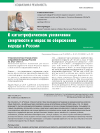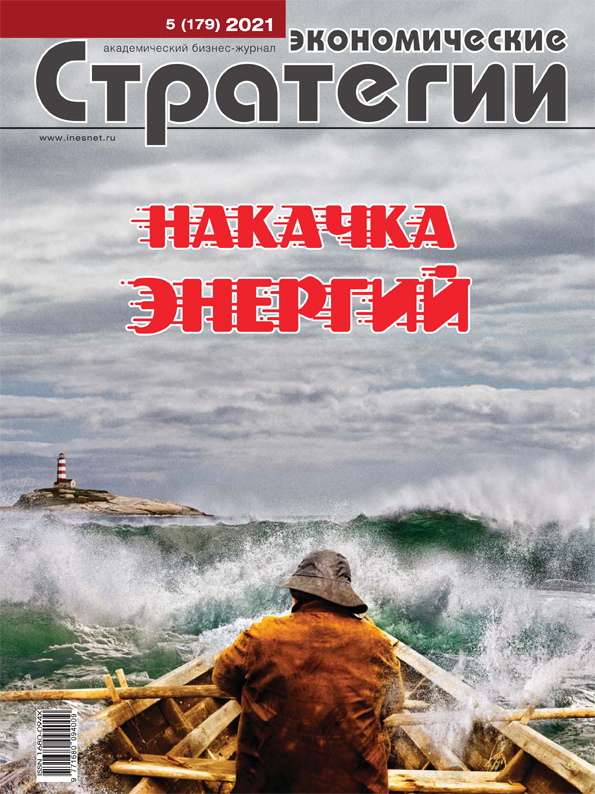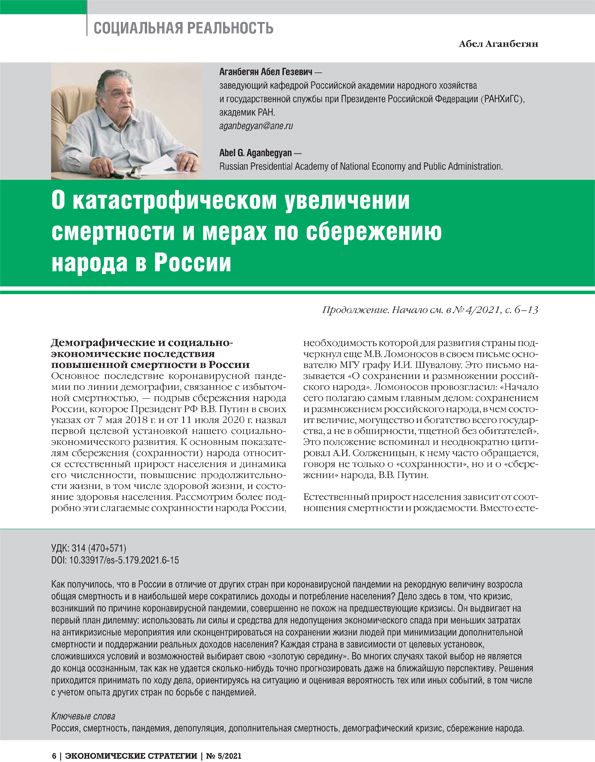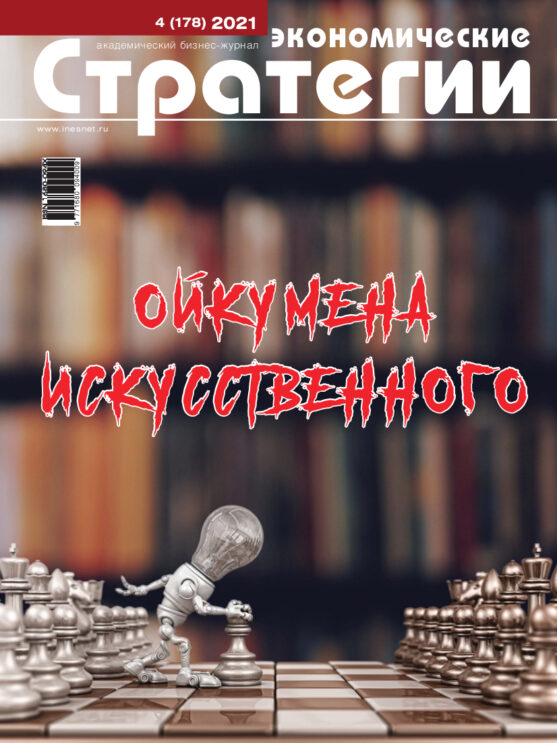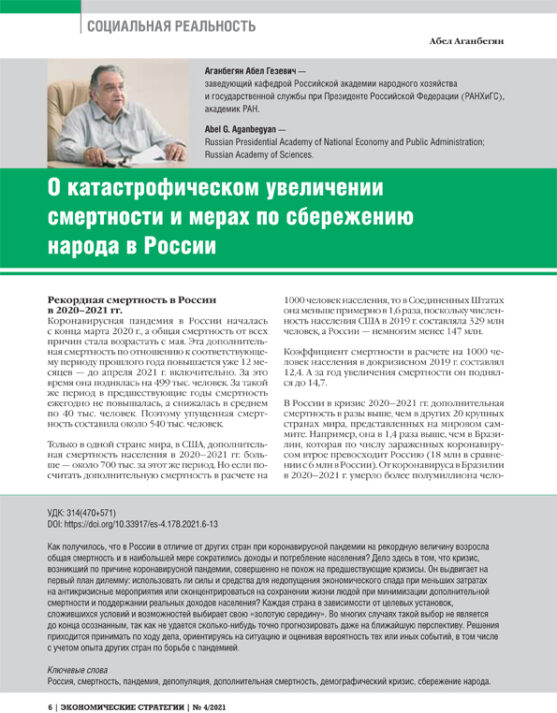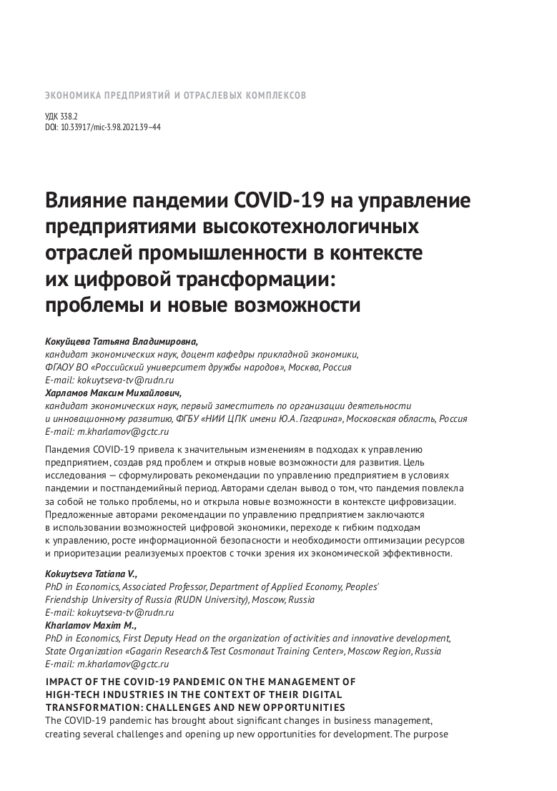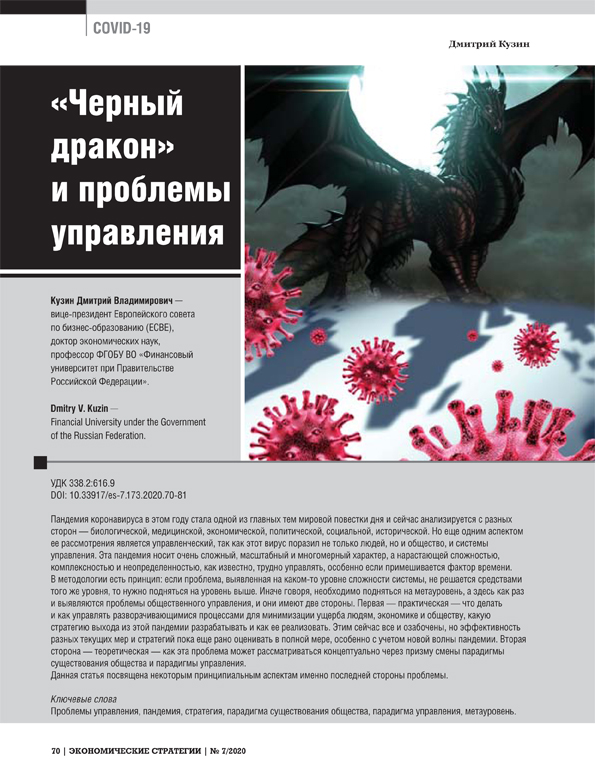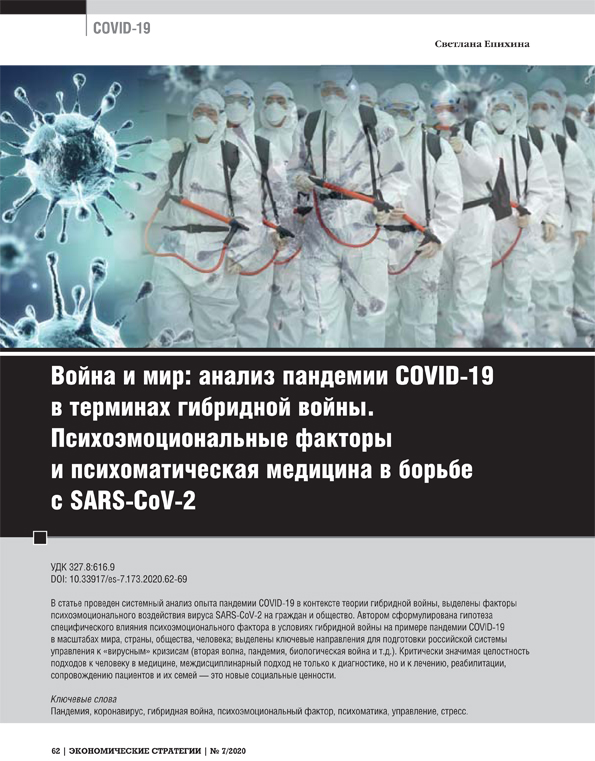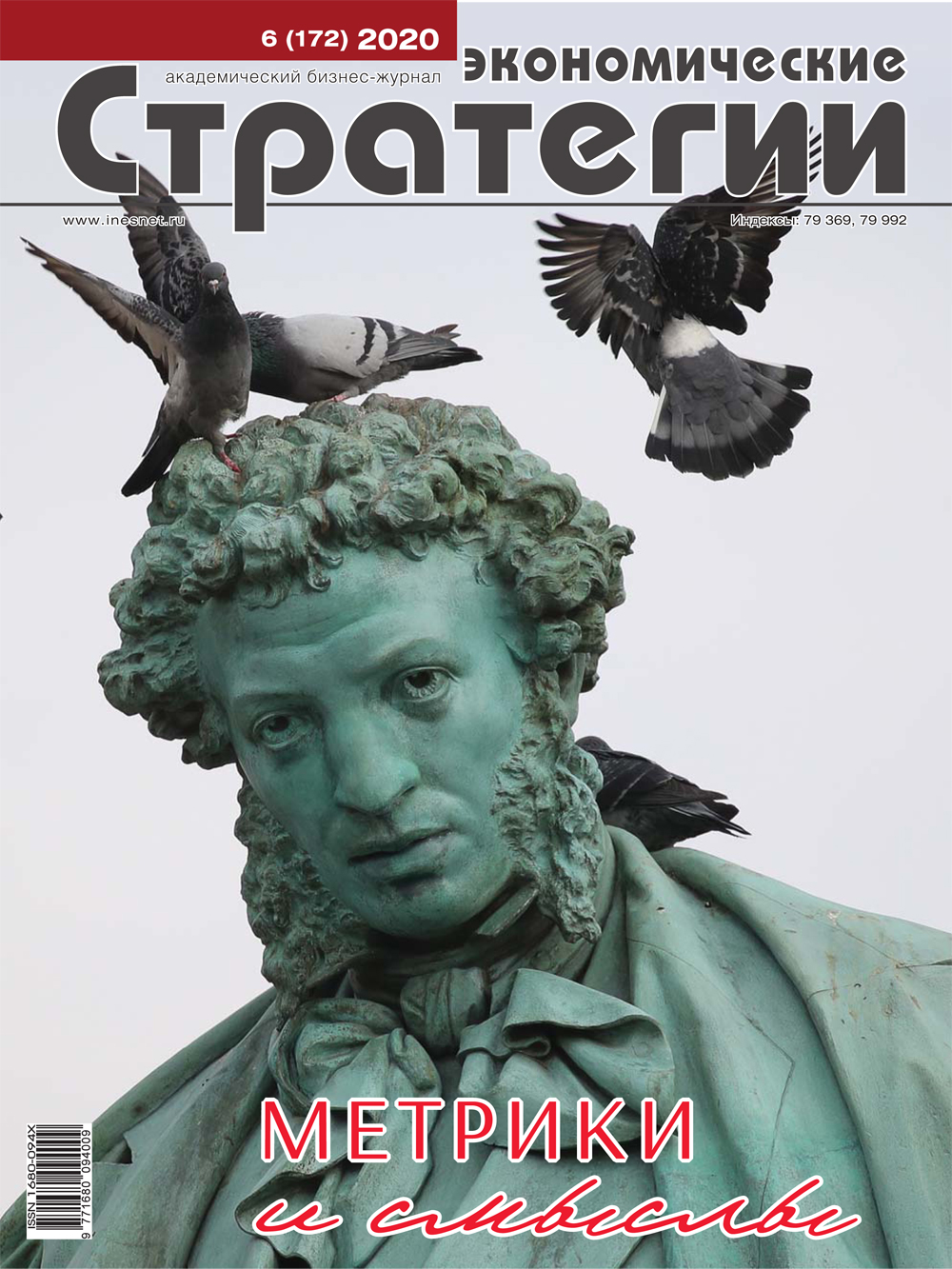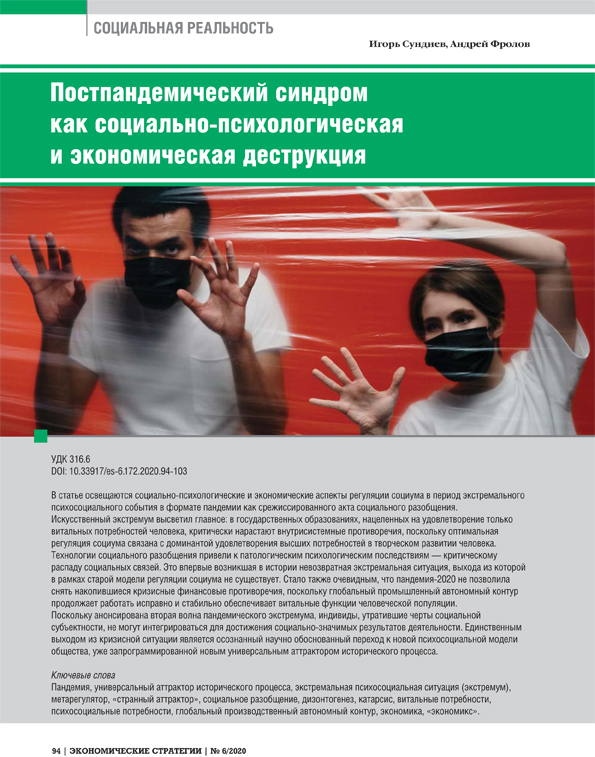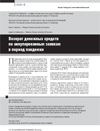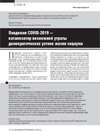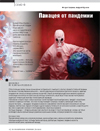On Catastrophic Increase in Mortality and Measures to Save the People in Russia
DOI: https://doi.org/ 10.33917/es-5.179.2021.6-15
How is it that in Russia, unlike in other countries, during the coronavirus pandemic the total mortality increased by a record amount and the income and consumption of the population decreased to the greatest extent? The point is that the crisis, caused by the coronavirus pandemic, is completely different from previous ones. It highlights the dilemma: should we use forces and means to prevent an economic recession with lower costs for anti-crisis measures, or focus on saving people’s lives while minimizing additional mortality and maintaining real incomes of the population? Each country, depending on objectives, prevailing conditions and opportunities, chooses its “golden mean”. In many cases such choice is not fully conscious, since it’s not possible to forecast with any certainty even over the near term. Decisions have to be taken up along the way, based on the situation and assessing the probability of certain events, including in view of the other countries’ experience in combating the pandemic.



